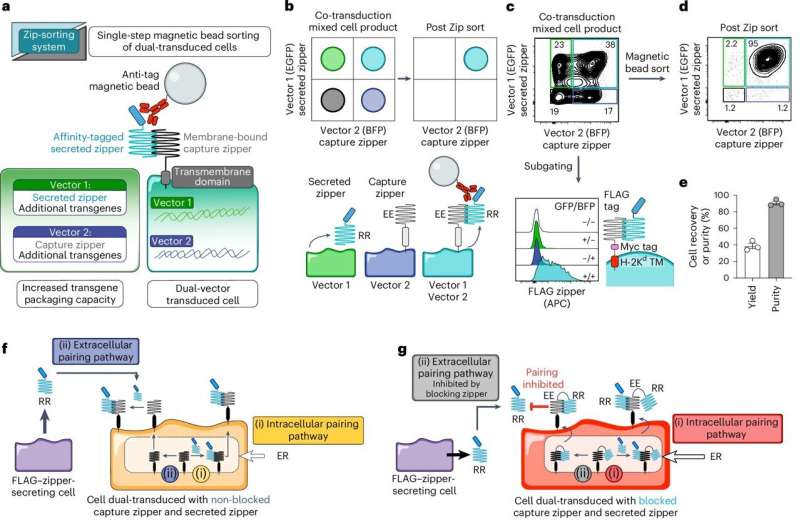CAR T cell therapy has revolutionized cancer care, providing a powerful option for some blood cancers. No treatment is perfect, however, and some patients develop resistance to CAR T cell therapies.
“Historically in the field, people have tried to overcome individual strategies that tumors use to evade immunotherapies. Engineering T cells to resist multiple strategies has been challenging due to limited DNA packaging capacity of current vector systems,” said Scott E. James, M.D., Ph.D., assistant clinical professor in City of Hope’s Department of Hematology & Hematopoietic Cell Transplantation and lead author of the paper. “We developed a new method to facilitate encoding numerous features in T cells with the goal of overcoming multiple tumor escape mechanisms at the same time.”
Current approved CAR T cell therapy takes immune cells from a patient’s bloodstream and reprograms them to produce a CAR that recognizes and binds to one specific protein, or antigen, found on cancer cells. Then, the engineered T cells are reintroduced into the patient’s system, where they destroy the targeted tumor cells that they now bind to. However, problems can arise, including low expression of the targeted antigen that makes it hard for T cells to “see” it.

